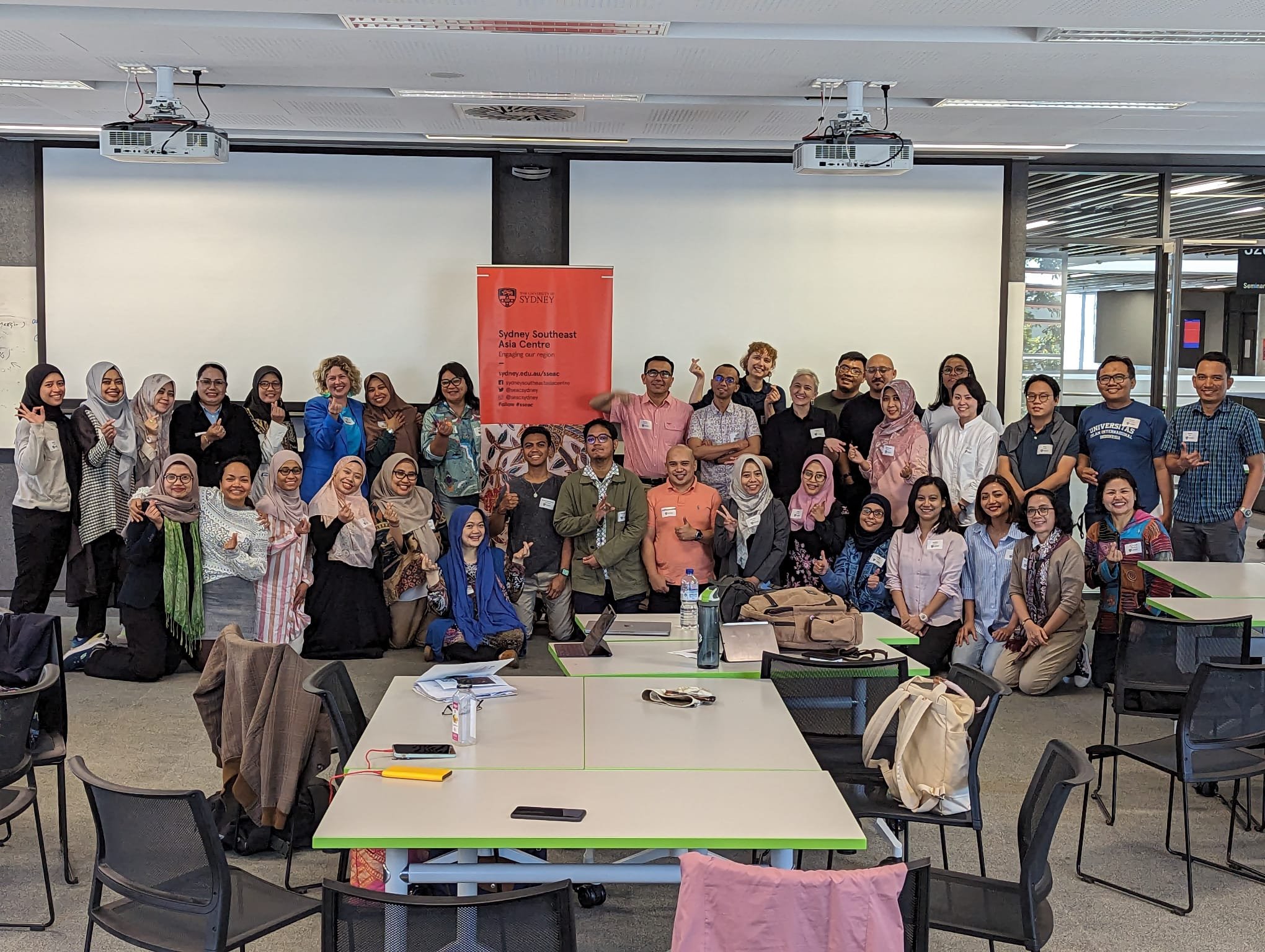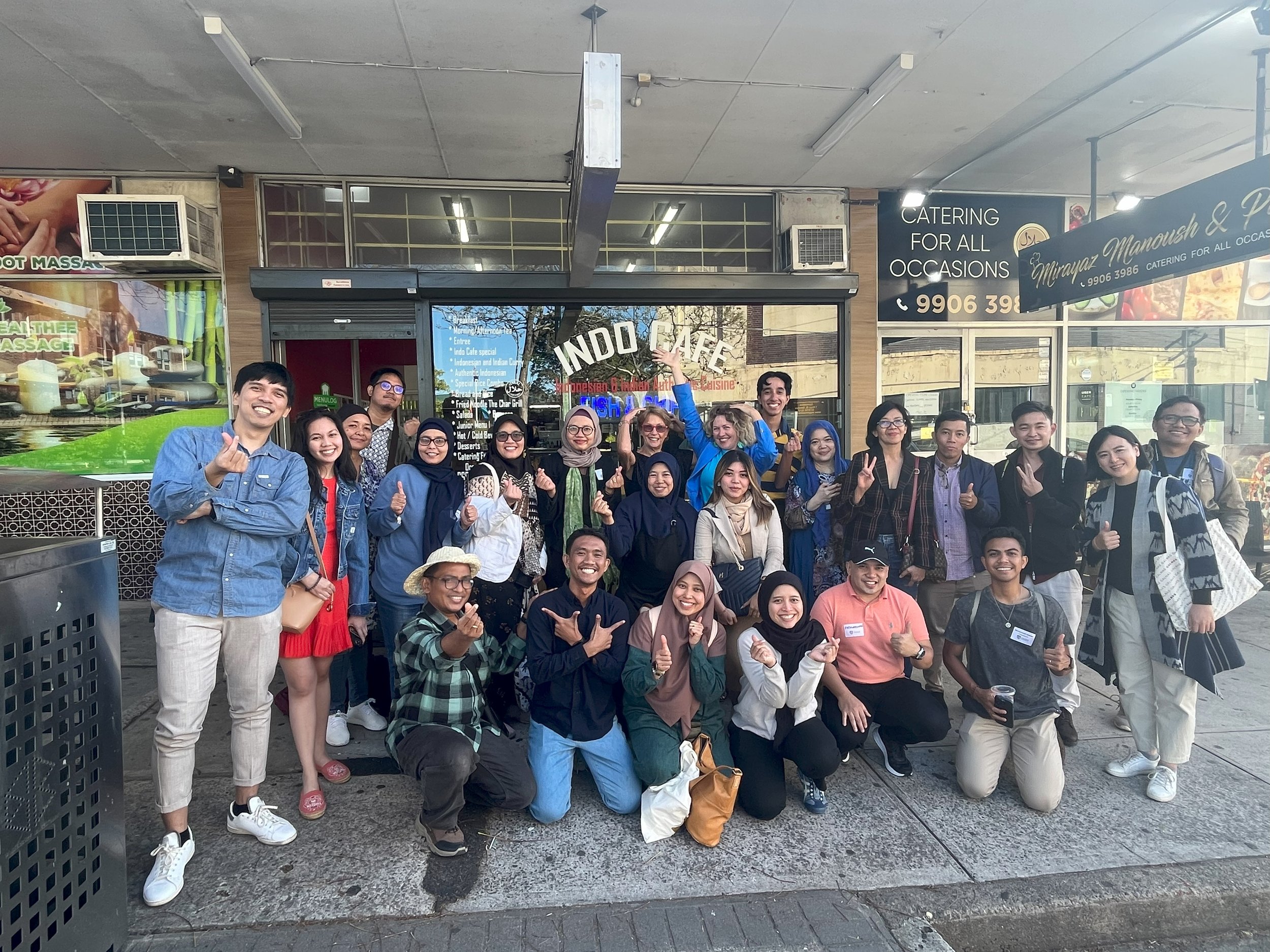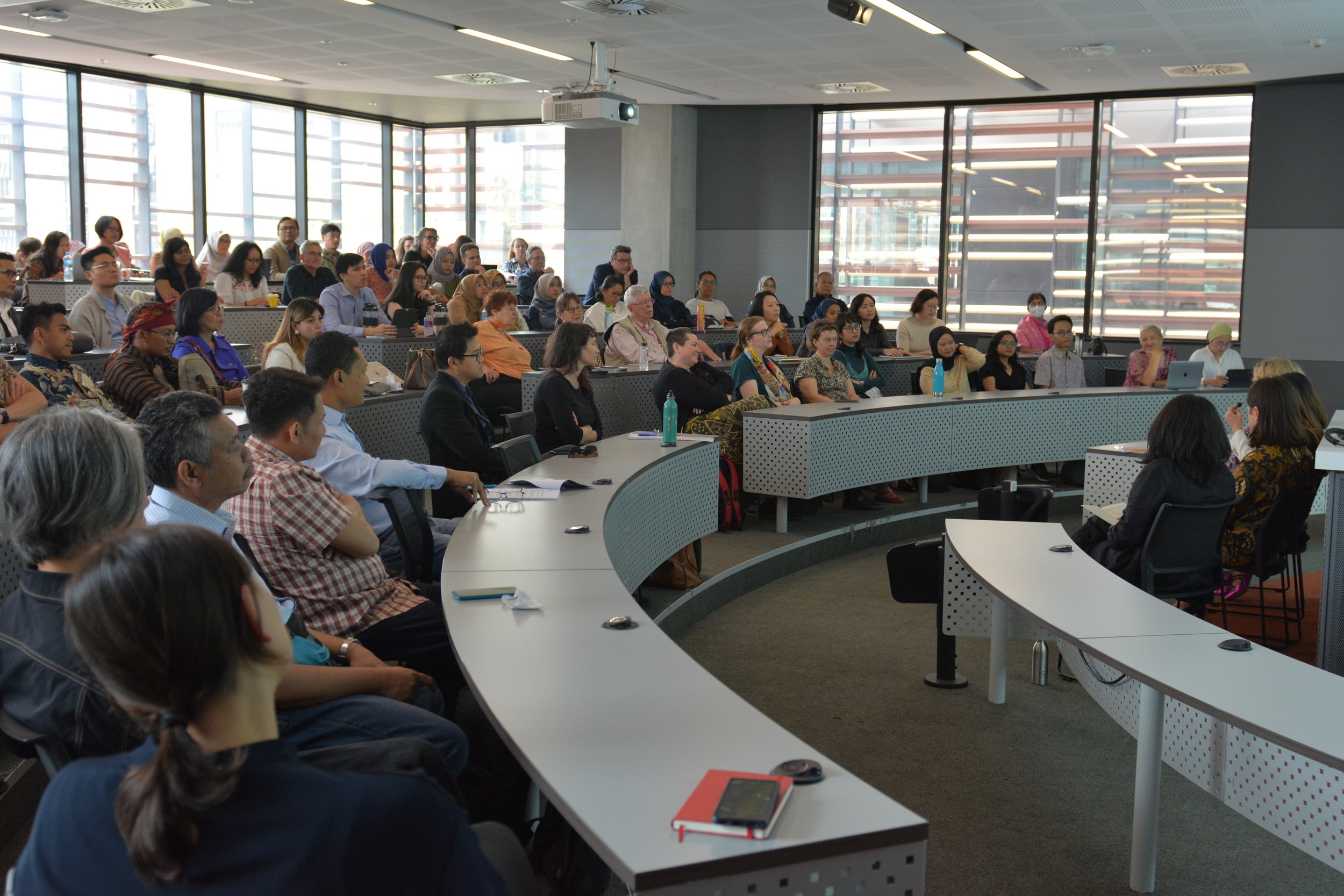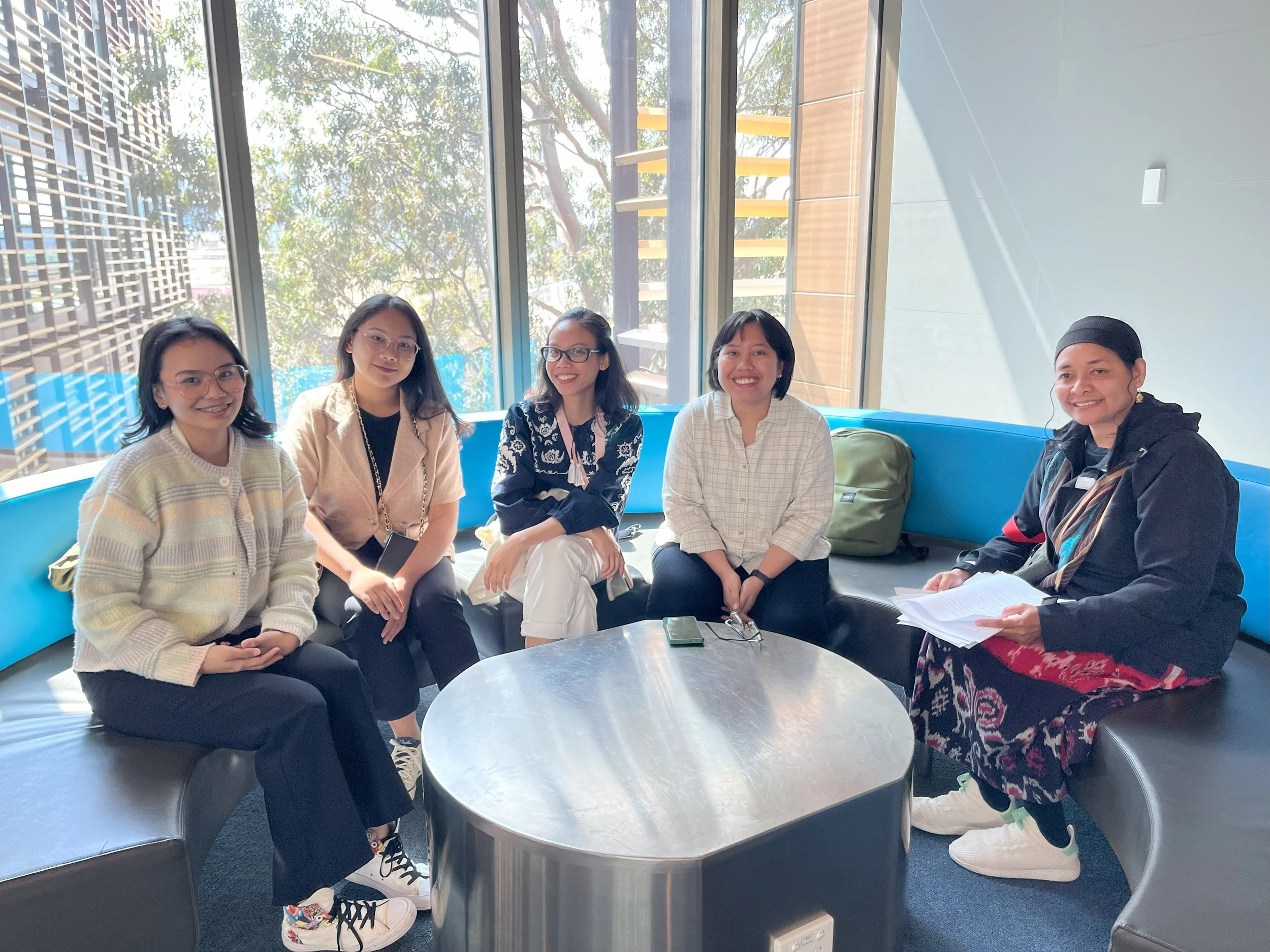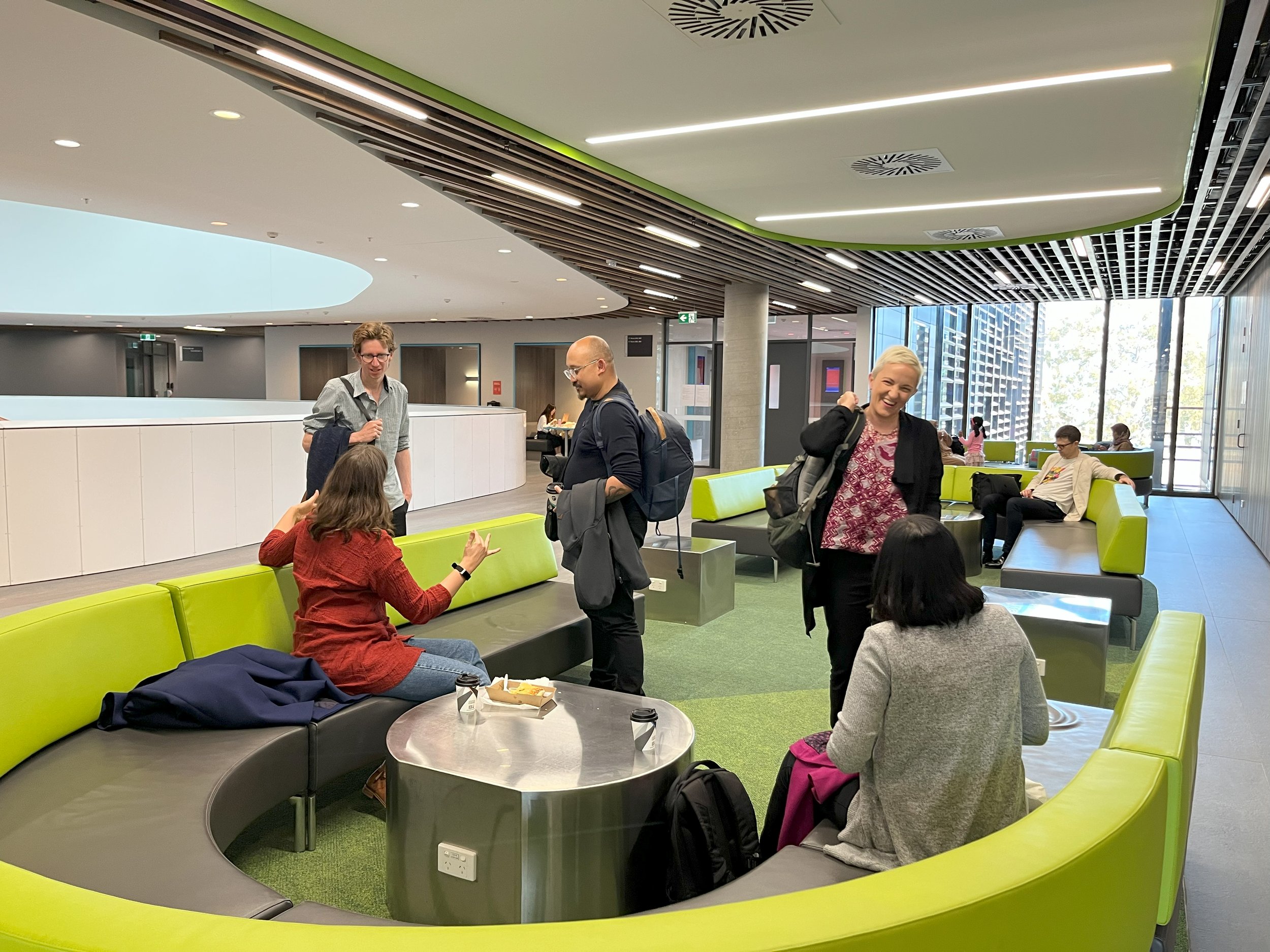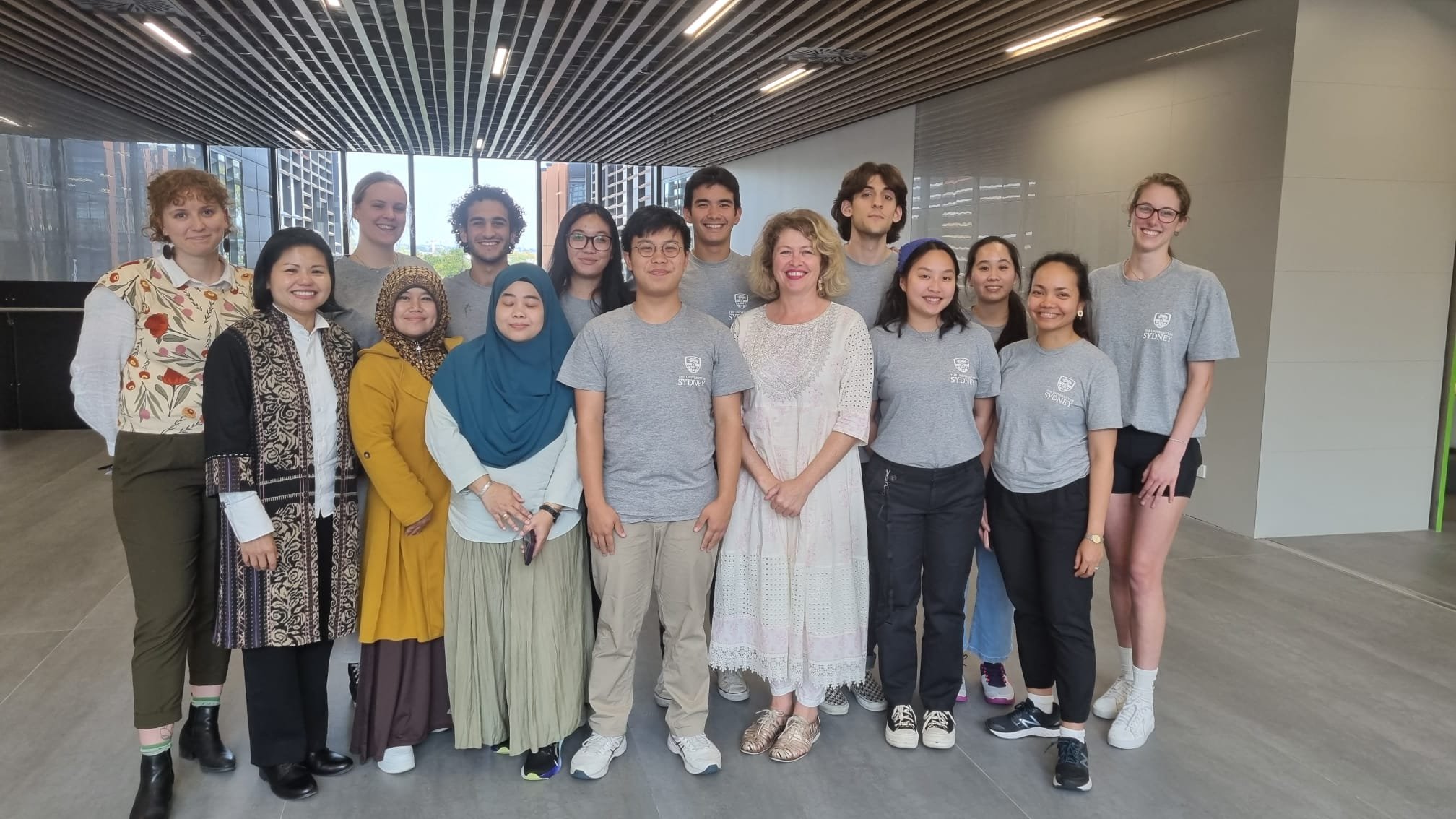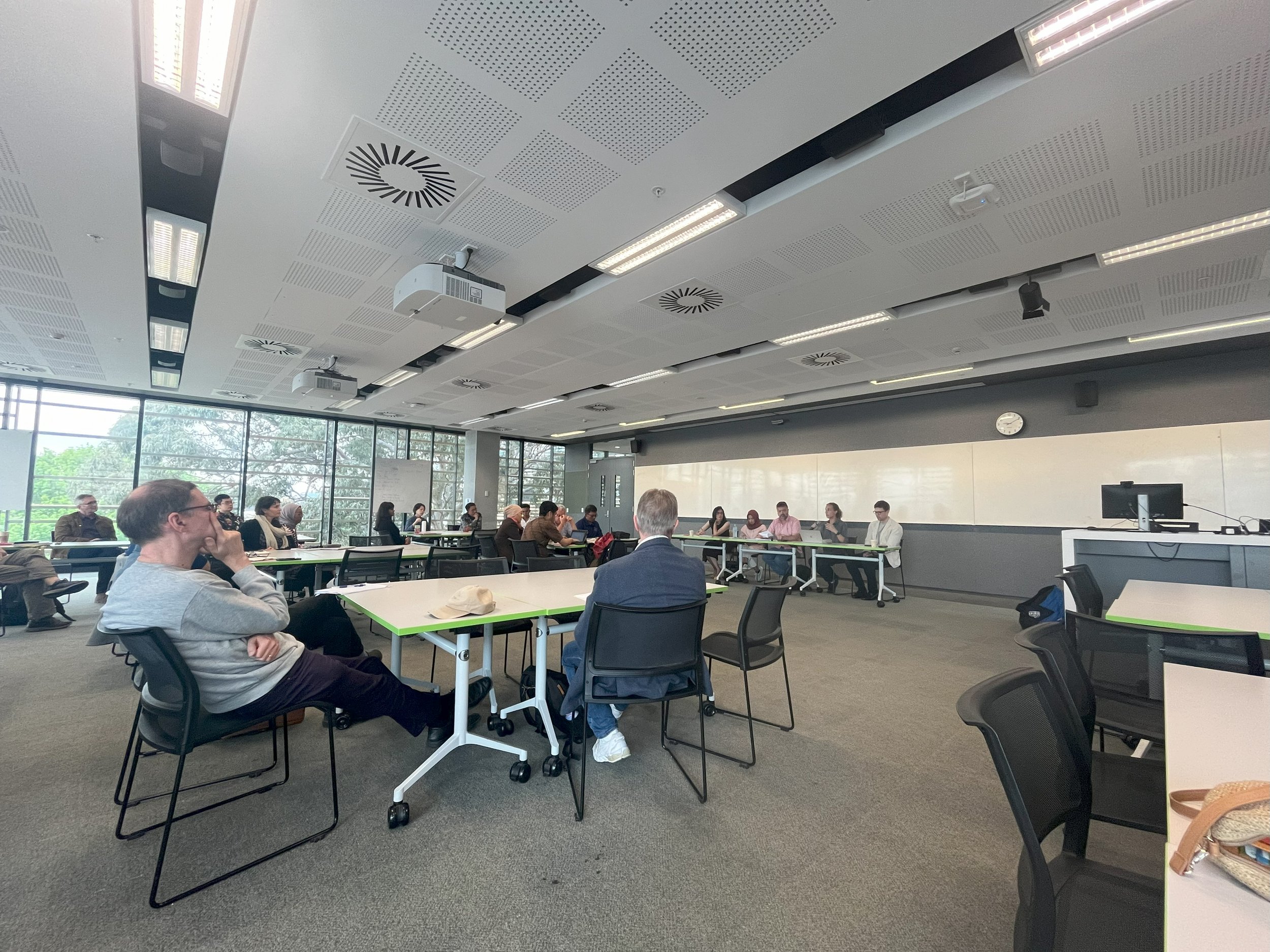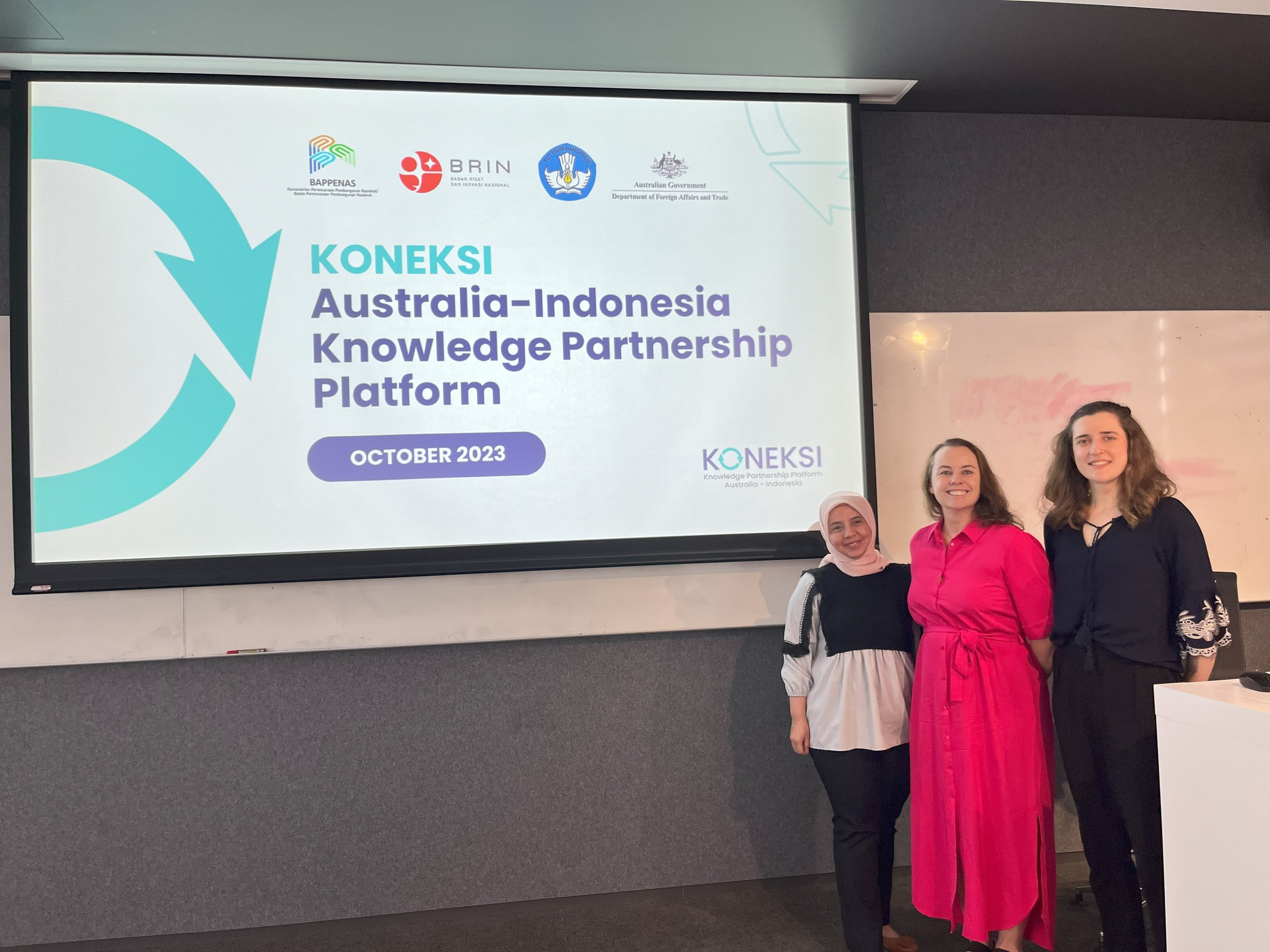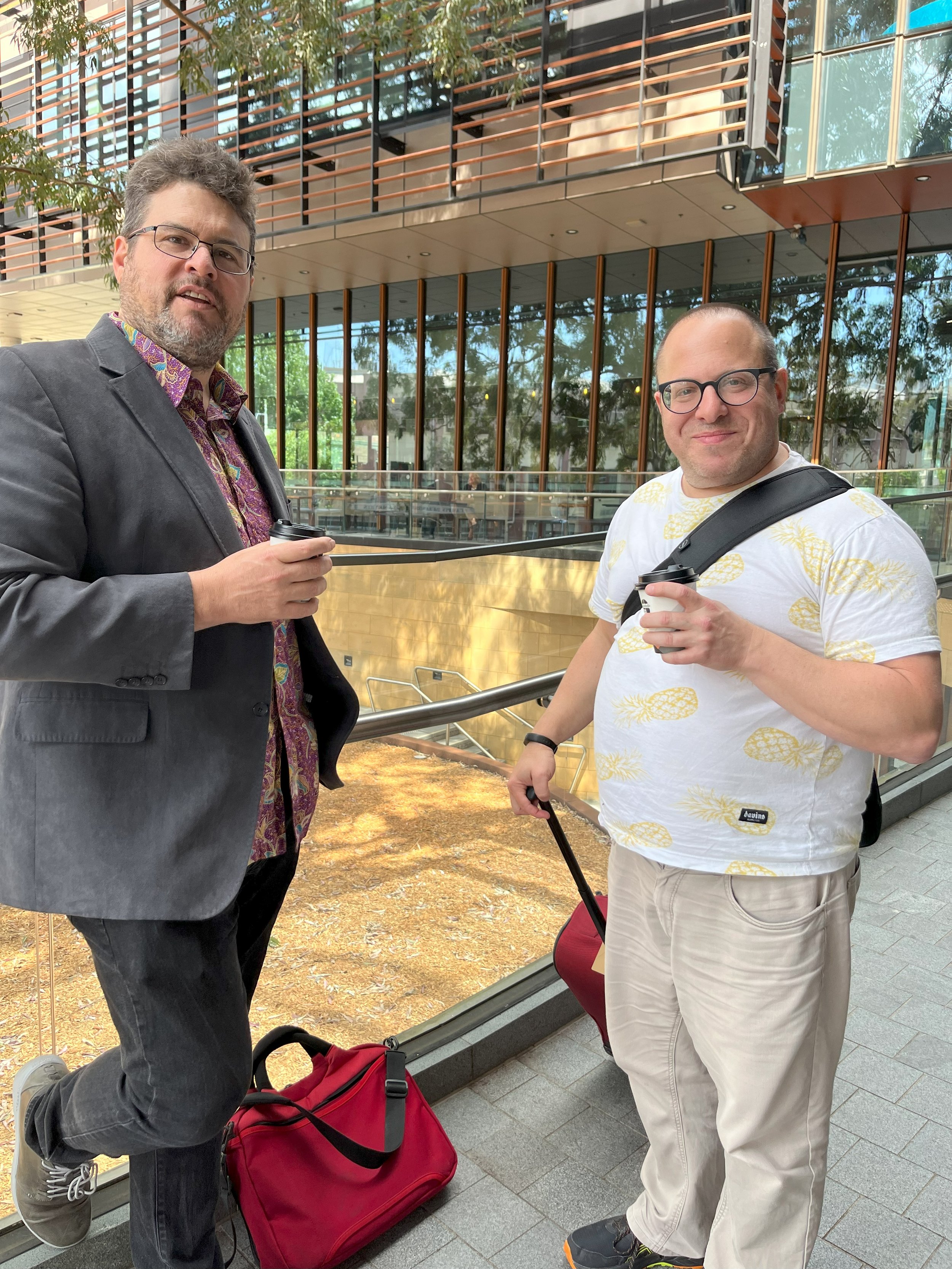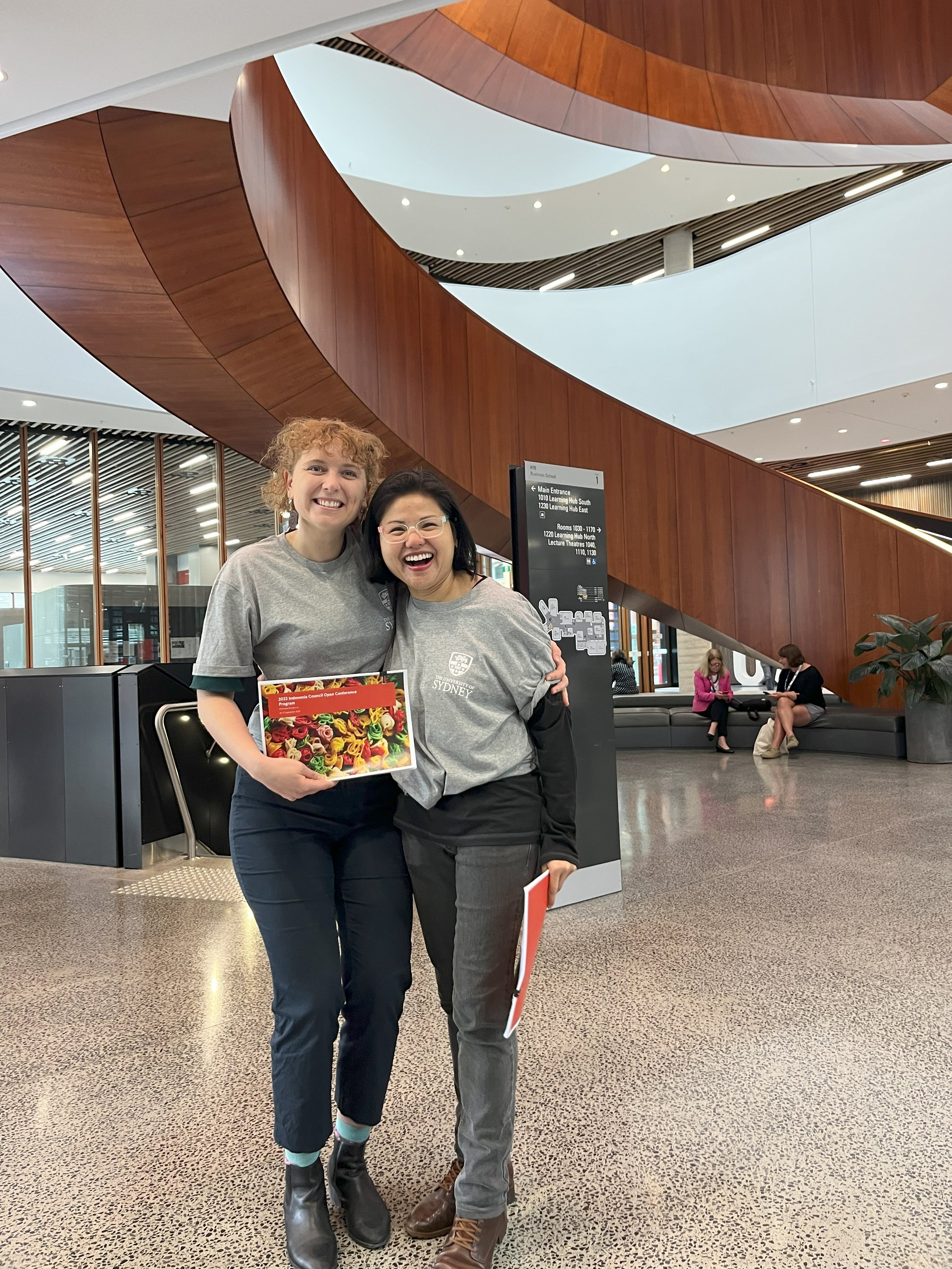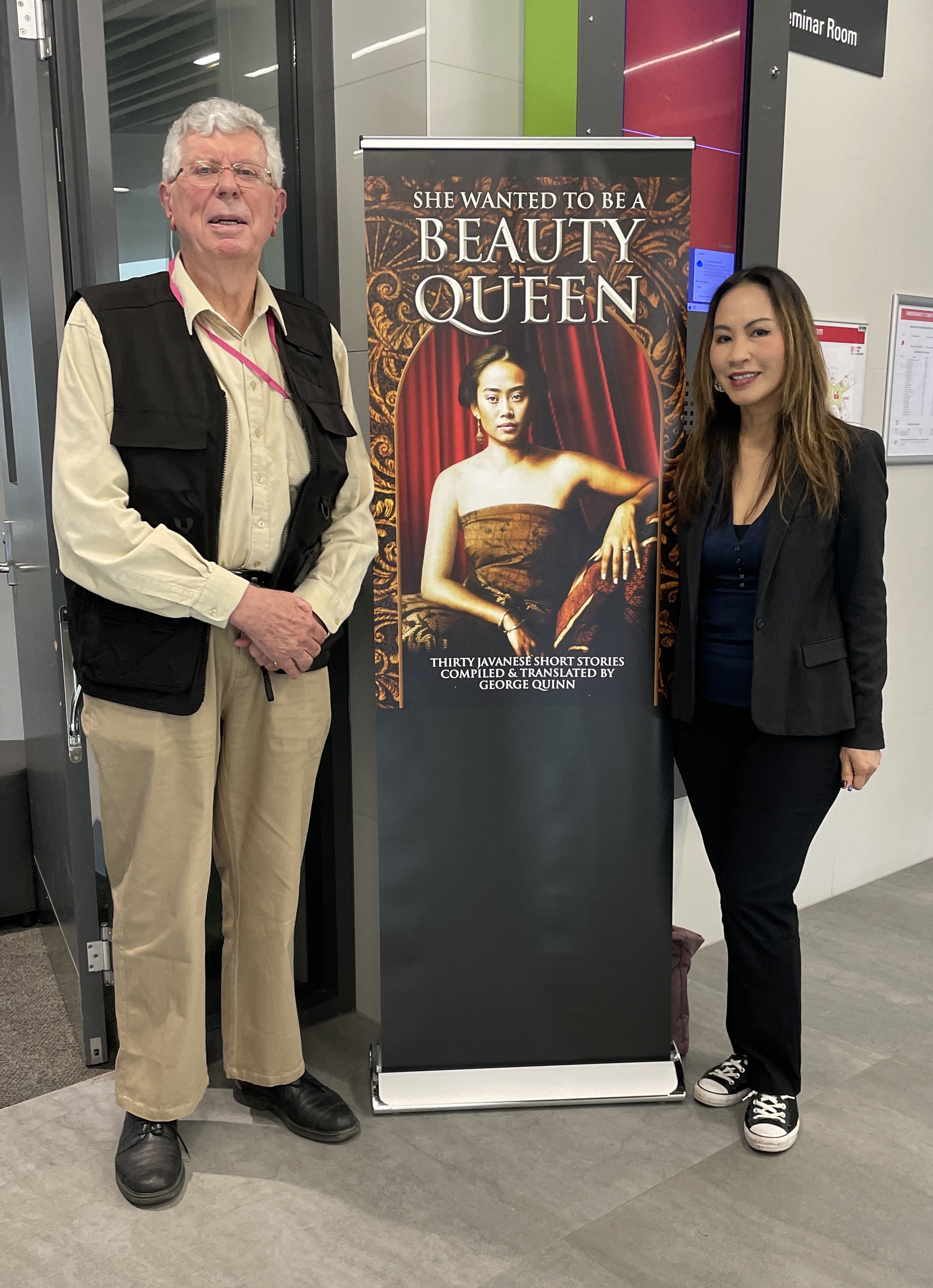Indonesia Council Digest - October 2023
Don’t be distracted by all the lovely photos and images in this month’s newsletter – it contains important information about changes to the Indonesia Council. If you enjoy these newsletters and love being a part of the Indonesia Council community, please make sure you read on!
Best,
Natali
Important changes to the Indonesia Council
At present, and as has been the case since its establishment, Indonesia Council is run by a tiny team of volunteers (you can count us on two fingers). Since Jeremy and I took on the leadership roles at Indonesia Council, we’ve been relying on in-kind institutional support—and some generous cash donations from a number of established scholars in Australia—to get the newsletter out each month and to update the website. We are so grateful for this support, but we have also long recognised the need to introduce some changes that will ensure the sustainability and longevity of the Council such that it is not so reliant on individuals or one-off donations.
As I flagged in the July 2022 newsletter, the first step in this process was the legal incorporation of Indonesia Council, which we achieved on 19 April 2023 (our official name is actually ‘Indonesia Council Inc [Registration Number INC2300434]).
We are now planning to take the next step toward a more sustainable model through the introduction of a paid membership structure. IC members voted in favour of this proposal way back in 2018. In introducing paid membership, we are joining most of the ASAA’s other sub-regional associations (in fact, we’re one of the last to do so) and are committed to an inclusive membership structure that prioritises heavy subsidies for students and unwaged members.
We propose that Indonesia Council members will receive the following benefits:
Indonesia Council Early Career Book Prize (awarded biennially)
Dedicated postgraduate events
Monthly newsletter (that’s right – we propose that the newsletter becomes members only)
Other events, activities and subsidies as suggested by you
Our proposed membership categories are:
Ordinary (fixed term and continuing academic staff)
Postgraduate students and casual academics
Retirees
Corporate / institutional
High school and undergraduate students
Members based in low-income Southeast Asian countries (does not include PhD students based in Australia)
Our proposed membership fees will be circulated in next month’s newsletter.
We are planning to introduce these changes, including paid membership, in early 2024. For now, please let us know your feedback by emailing me at iclistdata@gmail.com.
While I appreciate this is a big change for the Indonesia Council, I am also confident that this formalisation process, including the introduction of a paid membership structure, will provide a more sustainable future for the Council by allowing us to cover ongoing and one-off costs and to offer more dedicated member benefits.
ICOC 2023
Deep thanks to everyone who attended (both in-person and online) the Indonesia Council Open Conference 2023, and contributed to making it such a vibrant and rich experience.
We kicked off with a well-attended postgraduate workshop, expertly facilitated by PhD reps Yunie Rahmat and Umi Pujiyanti, before heading out to Belmore for lunch at IndoCafe and prayers at a nearby mosque.
The conference itself began with a plenary featuring three emerging scholars of Indonesia—Dr Annisa R. Beta (University of Melbourne), Dr Wayan Jarrah Sastrawan (École française d’Extrême Orient) and Ms Kestity A. Pringgoharjono (University of Technology Sydney)— who shared their reflections on what it means to be Indonesian today. Then it was straight into the panels – too many to do justice to here, but spanning topics as diverse as agrarian change, health and wellbeing, cities and urban living, identity, social movements, gender and sexuality, and arts and culture.Tito Ambyo has just uploaded a Talking Indonesia episode on YouTube in Indonesia based on one of the ICOC panels, with Andina Dwifatma, Erika Suwarno and William Yanko. They discuss Islamic YouTube web series, Hip-hop, archiving early history of Indonesian YouTube and horror. Meanwhile, the three roundtables (Kwir theory; Indonesia’s democratic trajectory; and Australia-Indonesia Research partnerships) were brilliant, as were the book launches.
A conference highlight for me was meeting Indonesian academic Saiful Mahdi. Saiful was sentenced for defamation in 2021 under the controversial Electronic Information and Transactions Law, in what was, at the time, a devastating blow to academic freedom. Indonesia Council (under previous President Jacqui Baker) was one of a number of organisations to advocate for amnesty for Saiful, which was eventually granted by the Indonesian President. How awesome, then, that Saiful was able to present his research at ICOC in a session on Trafficking, Asylum and Resilience, and to snap a selfie with me!
Finally, Jeremy Kingsley and I were delighted to meet with those of you who came along to our morning coffee with the Executive team.
What's Happening
UNESCO recognised Yogyakarta’s cosmological axis as a new world heritage site. This spatial concept, created by Sultan Hamengku Buwono I in the 18th century, embodies Javanese philosophy and universal values, emphasizing the importance of cultural preservation and conservation. That makes ten World Heritage sites in Indonesia (six cultural and four natural), meaning Indonesia has the highest number of UNESCO World Heritage sites in Southeast Asia (not that it’s a competition or anything).
How many of them can you name?
Answers at the bottom of the newsletter!
Call for Papers
We sent out a special email about the forthcoming Asian Studies Association of Australia conference at Curtin University (Perth, Western Australia) on “Asia Futures”, so this is just a brief reminder to get your abstracts in by 30 October. More information on the conference website!
Publications
Charlotte Setijadi’s new book is out now with University of Hawai‘i Press. Memories of Unbelonging: Ethnic Chinese Identity Politics in Post-Suharto Indonesia is an ethnographic study of how collective memories of state-sponsored ethnic discrimination have shaped Chinese identity politics in Indonesia. Combining case studies, in-depth primary data, and incisive analysis of Indonesia’s contemporary political landscape, she argues that trauma narratives are at the core of modern Chinese identity politics. Congratulations Charlotte!
Jobs
The University of California at Berkeley is hiring a full-time, tenure-track Assistant Professor specializing in the Islamic Worlds of Southeast Asia, in the Department of South and Southeast Asian Studies. Apply by 10 November to ensure full consideration by the committee AP Recruit

